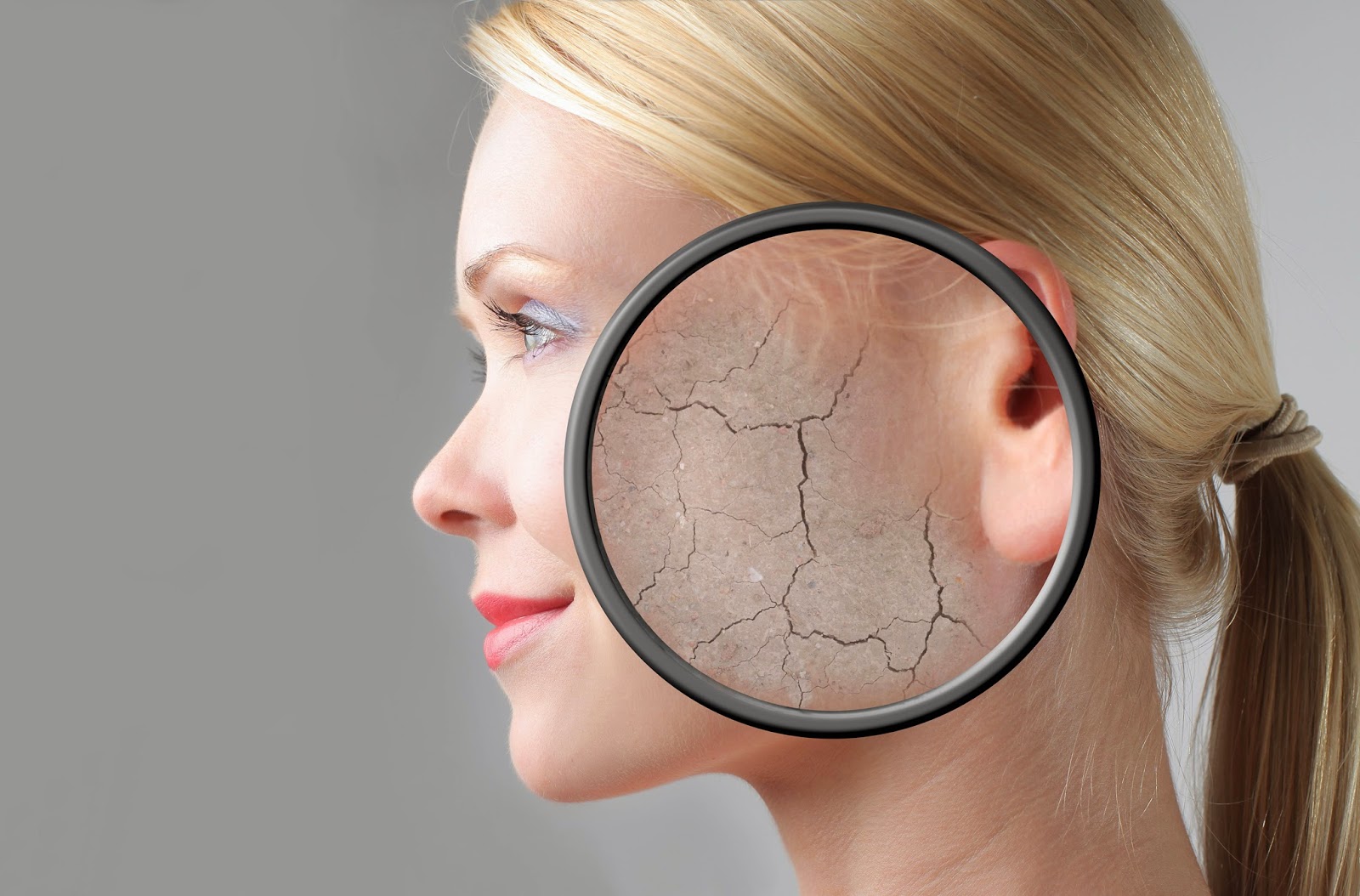The largest organ of
the body- skin, like all other organs shows signs of degradation with time and
the natural ageing process. The
top layer of the skin also known as Stratum Corneum protects the skin and is
formed from water based cells and an acidic mix of waxes(sebum and sweat) and
oily lipids. When this top
layer of skin gets damaged, the underlying muscles, bones, ligaments and other
internal organs get harmed.
So what damages the
top layer of the skin?
Natural Ageing:
 After a certain age
the physical changes in our body becomes normal. The Sebaceous gland that secrete an oily, waxy matter called
sebum which lubricates and makes the skin waterproof decreases
with age. Thus reducing the amount of natural hydrators making the skin(and
hair) rough and dull, and the production of collagen and elastic deteriorate
making the skin slack. With age the skin also steadily loses it’s ability to
renew and restore the fats in the protective layer of the Stratum Corneum. And as the person grows older the blood
flow to the skin also reduces. All these age related
factors contribute to the drying of the skin. Although there are products that
can stall this ageing for a while, the physical changes to the skin are
inevitable as the person gets
older.
After a certain age
the physical changes in our body becomes normal. The Sebaceous gland that secrete an oily, waxy matter called
sebum which lubricates and makes the skin waterproof decreases
with age. Thus reducing the amount of natural hydrators making the skin(and
hair) rough and dull, and the production of collagen and elastic deteriorate
making the skin slack. With age the skin also steadily loses it’s ability to
renew and restore the fats in the protective layer of the Stratum Corneum. And as the person grows older the blood
flow to the skin also reduces. All these age related
factors contribute to the drying of the skin. Although there are products that
can stall this ageing for a while, the physical changes to the skin are
inevitable as the person gets
older.
The most
sought-after skin is that which looks and feels young. However, I urge you not
to go in for any medical or anti-ageing surgical procedures without consulting
an expert. All these procedures have their innate risks and it would be prudent
to weigh these against the benefits. Constance persistence and a healthy
lifestyle with a detailed skincare routine will help minimize the signs of premature
and natural ageing skin.
Dehydrated Skin:
Dehydrated skin of
all skin types be it dry,
oily, or a combination of the two is a temporary and treatable condition.
Dehydrated skin by its very definition is skin that lacks moisture and has low
water content which happens due to a loss or reduction in bodily fluids. It feels
taut, flaky and itchy, and can be aggravated by too much exfoliation, poor
diet, an increased intake of
caffeine and alcohol, smoking, and exposure to the sun.Replacing the lost
fluids by drinking water, eating vegetables and fruits rich in water, and taking
precautions for your skin in harsh conditions will help restore
the smoothness and elasticity of the skin. Including exercise in your daily
routine will help with blood circulation in the body and in turn help the skin
detox and stay hydrated. Even though the natural ageing of skin is unavoidable,
you can still prevent damage to it- prevention after all is a lifetime process.
•
Using
sunscreen on a daily basis, even during the winter months
•
Having
balanced nutritional meals
•
Staying
hydrated- Lack of which can lead to rashes, abrasions and other inexplicable
skin changes
•
Limiting
the use of harsh soaps- the ones that are heavily perfumed
•
Lavishly
pampering your skin with lotions and boy butters - Moist skin looks healthier
and also heals a lot quicker.
With frenzied
working hours and hectic schedules, we tend to ignore some vital bodily signs-
skin included. The crucial thing is to ‘listen’ to your skin and body and work
with them rather than fighting against the inherent nature. Establish for
yourself a high moisture yet gentle skin care regime and give your skin time to
heal. Your skin may feel oily but may still needs to be hydrated as it lacks
water. Healthy skin goes beyond appearance- it keeps you from getting sick and
damaging your bones, muscles and internal organs.
Healthy skin means a
healthier you !


No comments:
Post a Comment